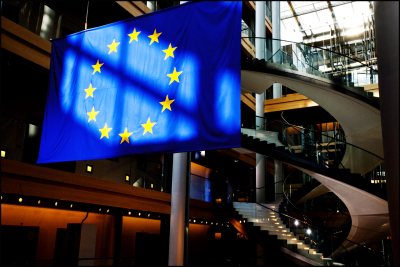8 December 2020, Brussels
Transparency International EU, the Brussels office of the global movement against corruption, has given a cautious welcome to the agreement that was reached between the European Parliament, the Council and the Commission on a joint transparency register for the three institutions.
Yesterday the European Commission, Parliament and Council came to a preliminary agreement on a joint register that for the first time will also include the Council . After so many years of negotiations Transparency International EU welcomes an agreement that includes the latter. Yet, the text, as seen by Transparency International EU, shows that there are still major shortcomings to address, and that talk of a “de facto mandatory register” amounts to little more than hype at this point.
“We welcome the Council being willing to implement some level of lobby transparency. The agreement also includes other positive reforms such as a broad definition of lobbying and the inclusion of more transparency requirements on how third countries are influencing EU policy”, said Vitor Teixeira, Senior Policy Officer at Transparency International EU.
At the same time the text of this preliminary agreement does not set out mandatory minimum lobby transparency standards that are harmonised across all three institutions, which is a missed opportunity.
“The proposal essentially states that each institution is free to establish its own rules on interactions with lobbyists. What we need to see next is a clear commitment from all three institutions to firstly only accept meetings with registered lobbyists and secondly to publish all lobby meetings on a central website that is linked to the common transparency register,” added Teixeira.
The negotiations have been ongoing since 2016, when the Juncker Commission proposed the creation of a mandatory lobby register common to all three EU institutions but have been fraught with disagreement and delays since the outset (see notes).
In a statement, the institutions presented the agreement as a de facto mandatory lobby register, however in practice it is not the case. A mandatory register would imply that any lobby organisation would have to sign-up to secure a meeting. As it currently stands, the draft does not set out this requirement for most policy makers in the EU Institutions.
The work to ensure that policy-makers make full use of this new framework and adopt stronger rules on lobby transparency starts now.
/ENDS
Notes to editor:
EU Integrity Watch
Transparency International EU has developed an online platform that tracks and visualises the lobby meetings of the European Commission and European Parliament. The platform is online here.
Background on negotiations
The 2016 proposal centred on two key reforms that are already applied by the highest levels of the Commission since 2014. First, is the adoption of a conditionality principle, in which policy makers would only accept meetings with registered lobbyists – also known as ‘no registration, no meeting rule’. The second was the mandatory publication of lobby meetings.
From the outset, both the Parliament and the Council refused to accept those two principles. The Parliament gave the legal reason of freedom of mandate, although the proposal clearly states that MEPs are free to interact with any citizen and to pro-actively reach out to any organisation they see fit.
As for the Council, their legal opinion made it clear that Permanent Representations are not the part of the Council. Through their Permanent Representations, Member States are a co-legislator that impact the daily life of 500 million people across Europe. Yet, according to the opinion, the Permanent Representations cannot abide by any transparency rules set out at EU level. Considering that most EU countries have no rules at all when it comes to lobbying, expectations remain low.
Following years of deadlock, the negotiations broke down before the European elections. The negotiations were re-started under the Von der Leyen Commission, following a public commitment made by the three EU institutions at a TI EU event.






